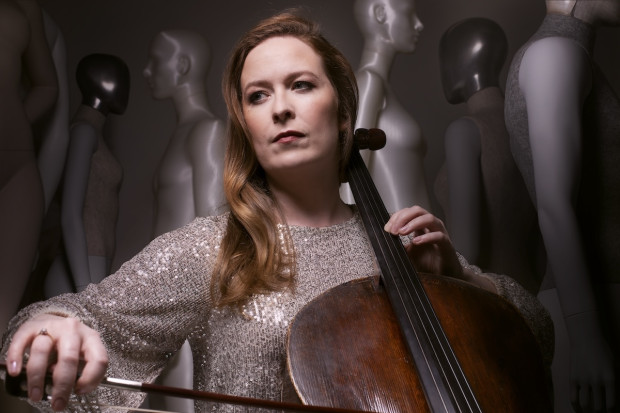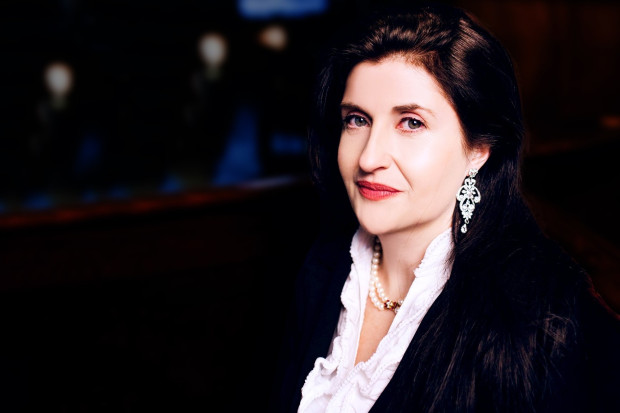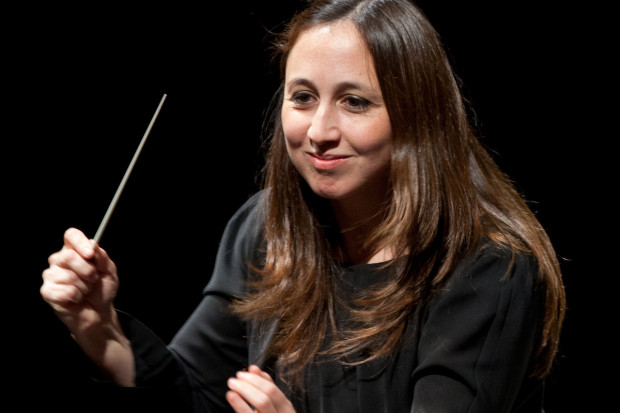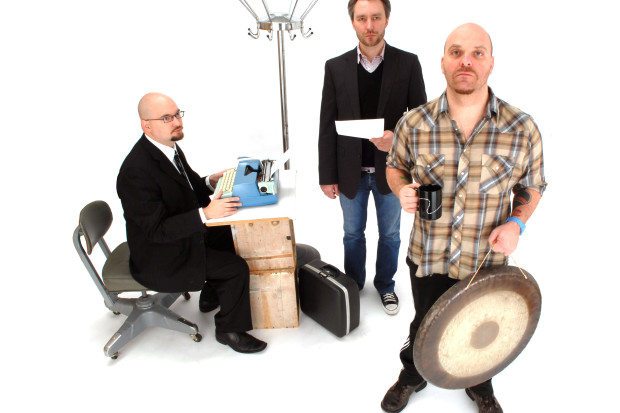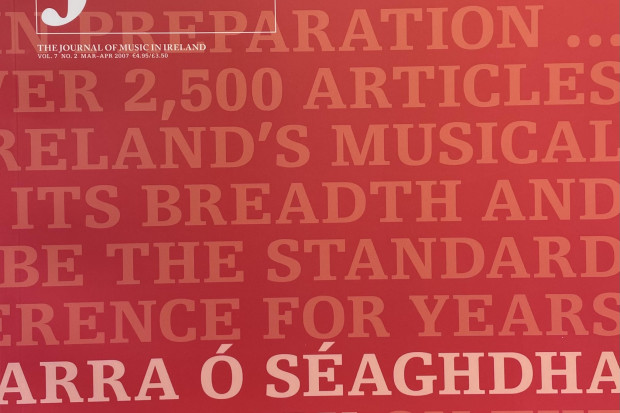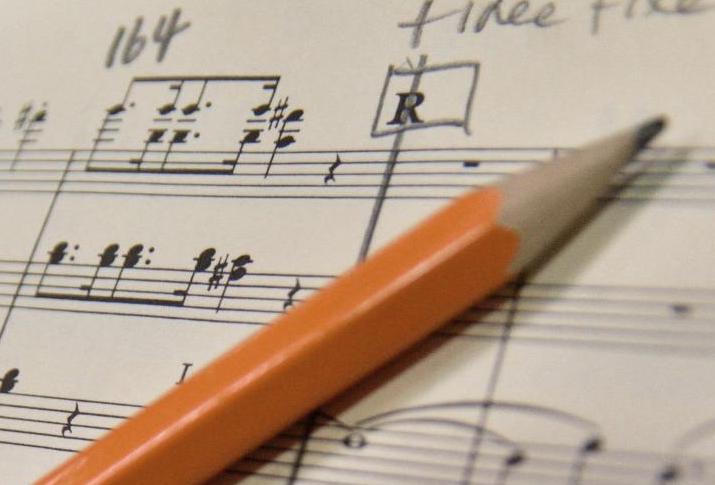
Third-level Music and the Leaving Certificate
The new music syllabus for the Leaving Certificate, which was examined for the first time in 1999, has had a significant impact on third-level music education. The numbers taking music at higher level in the Leaving Certificate has increased from 1,037 in 1998, the last year of the old syllabus, to 2,893 last year (Dept. of Education figures), an increase that has had particular implications for those universities and colleges that include music as part of an ‘open-entry’ Arts degree course. Students gain access to such courses not by interview or other individual selection process, but solely on the basis of sufficient points in the Leaving Certificate including music.
At NUI Maynooth, now the largest university music department in the country, the first year Arts music class has jumped in numbers in the last two years from between the mid-thirties and mid-forties to between seventy and eighty students (students apply through a different process for the BA Music degree course on which the number of places is limited). Comparable increases have taken place in other universities and colleges throughout the country, and this is certainly a positive development (despite the problems of space and staffing it can impose): such a significant increase in the numbers of people studying music at third-level must be a cause for rejoicing. But there is another side to this increase that has generated considerable concern and discussion: while the numbers have increased, the overall standard of students entering third-level music has declined.
A letter to the Irish Times in January signed by all the full-time staff of the music department at NUI Maynooth stated that ‘While the old syllabus may have been justifiably criticised for its arid academicism, the new would appear to have attempted redress through an overtly populist approach which offers the student little real intellectual or technical challenge’. It cited the fact that Leaving Certificate music students themselves have described the syllabus as ‘easy’, a view that ‘can hardly be said to satisfy the educational criteria which should inform the design of a comprehensive senior school music teaching and examining syllabus’. Department of Education figures bear out this perception of the course as being ‘easy’: whereas 31.1% of students gained an A or B grade in (higher level) music in 1998, that figure has risen to no less than 76% in 2000. If three-quarters of all students taking the exam can achieve one of the top two (out of four) pass grades (and with a failure rate, i.e. grade E or below, of only 0.1%), questions surely need to be asked about the intellectual challenge presented by the syllabus. The ‘arid academicism’ of the old Leaving Certificate course has mercifully gone, but is the present Leaving Certificate music course suitable as a preparation for further study?
This raises fundamental questions about the purpose of the Leaving Certificate in music: should it provide a broad, popular musical education, or should it serve as a preparation for further study? Strong arguments can be advanced for both approaches. The fact that the number of pupils accessing music within the national secondary educational system has increased so significantly is certainly a source of encouragement to anyone who has been concerned about the low priority of music within our educational environment. But at what price? The Department of Education addressed the widely-acknowledged need to revise the old Leaving Certificate music syllabus through a radical re-design. In the absence of any meaningful music education at primary level (despite the written aspirations of the various primary syllabuses, which have applied since the nineteenth century), this means beginning effectively from scratch at the commencement of the secondary cycle. Students with no previous musical experience can start studying music at this stage (that is, in the minority of secondary schools that offer music as a subject) with the Leaving Certificate as a realisable objective. But what should the Leaving Certificate music syllabus seek to achieve; and what is understood by ‘music’ as a subject of secondary-level study?
Here we touch on the perennial problem of defining an area of artistic expression whose forms are as varied as is our kaleidoscopic social and cultural environment. Is it feasible to reconcile within such a syllabus the often conflicting demands of music as defined by the European classical tradition, by Irish traditional music, by popular and commercial music, by jazz, or by any other ‘musics’ that have a currency and relevance within our society? As a means of providing a broad musical education, the emphasis in the Leaving Certificate has moved from a strongly ‘academic’ and classical emphasis combined with some acknowledgment of Irish traditional music, to a much broader engagement in which the ability to read and write music (musical literacy) has less relevance. Music literacy may not be an essential part of traditional music, of jazz or of popular music as it is of ‘classical’ music and yes, the new syllabus does include some training in written composition and some opportunities for basic harmonic training. But with less demanding options available (why struggle to master the complexities of four-part harmonic writing if you have the option of demonstrating sufficient knowledge of harmony by merely writing the names of a handful of guitar chords under a given melody?), is it any wonder that the more challenging options are so often avoided?
The new syllabus may encourage musical self-expression and creativity, but in a manner that does not demand more than the most basic ability to read or write music. This ability (i.e. musical literacy) may be largely irrelevant to popular music, which is aurally based, but to what extent should the demands of a state-sponsored musical education be determined by the least challenging forms of music? Should not such a syllabus challenge and expand the minds of students, providing them with the means for a deeper appreciation of the wealth of musics that both the past and the present offer us? And whatever type of music you identify with, the European art music tradition is part of our shared cultural heritage, an appreciation of which should form an intrinsic part of a broad education (and I don’t mean just a ‘musical’ education). Everyone who calls him- or herself educated should have some informed familiarity with the music of Bach and Stravinsky, just as they should with the writings of Shakespeare and Yeats, the paintings of Rembrandt and Cezanne, and the architecture of Palladio and Le Corbusier. ‘Informed’ familiarity demands some understanding of the language of music, for which some level of fluency in reading and writing music must surely be a prerequisite.
I don’t wish to sound too negative or gloomy: whatever the shortcomings of the present syllabus may be, the fact remains that increasing numbers are engaging with music for the first time in a structured way. But if the Leaving Certificate is also to serve as a preparation for further study of music at third level, then there clearly is a problem. As I noted above, universities and other third-level institutions throughout the country are not only experiencing an increase in student numbers: they are also experiencing a noticeable decline in real standards at entry into first year. And this is happening despite the higher levels being achieved in the Leaving Certificate music exam by the great majority of students.
Even before the current syllabus came into effect most third-level music departments were operating separate entrance tests for applicants to designated music degree courses since experience had shown that the Leaving Certificate was a poor guide to suitability for these courses. Now the situation is even worse. Many of our incoming music students have the good fortune to come from schools with a strong musical tradition, or to have enjoyed the benefits of high-quality private musical tuition (perpetuating an elitist situation since, in the absence of significant state involvement in music education on a country-wide basis, such opportunities are limited not only by economic status but also by geography). But there are also those who, despite having achieved even quite high grades in Leaving Certificate music at higher level, can barely be described as musically literate. A high proportion of students coming into third-level music degree courses has difficulty in grasping the concept of music written using more than one stave. This is a fundamental prerequisite for any understanding of (let alone technical ability in) the harmonic and contrapuntal language of music, not to mention the ability to read even the simplest piano score. The emphasis in the former syllabus may indeed have been too dry and ‘academic’, but does the present syllabus go too far in an opposite direction? Have we thrown out the baby with the bath water? As a preparation for third-level study the Leaving Certificate syllabus certainly needs to be re-examined.
Third-level music departments in this country are all to a greater or lesser extent re-organising courses to accommodate the lower average entry standards. Foundation courses have been initiated for incoming students in order to ensure that they have the basic elements of musical literacy necessary for the serious study of music. At the same time students who have had the benefit of instrumental or other musical tuition since childhood find the Leaving Certificate easy and intellectually unchallenging. The basic, remedial work being carried out in such foundation courses eats into already limited tuition time, and the prospect of achieving at the end of three (or in some cases four) years the same level that was formerly the case presents huge problems with serious timetabling and staffing implications. Since the introduction of the new Leaving Certificate a dramatic increase has occurred in first-year failure rates at third level. As a result courses and expectations are being re-assessed on an on-going basis, calling for consideration of at least four possible courses of action:
(1) to do nothing, treating the Leaving Certificate as inadequate and irrelevant to third level needs and effectively saying ‘tough luck’ to students who, despite maybe having gained a reasonably high grade in their Leaving Certificate, have simply not been equipped for third-level music studies;
(2) to rely at third-level on a significant increase in the availability of both staff and contact hours in first year in order to make up the difference (an option that seems to be effectively ruled out due to funding implications as well as the logistics of timetabling multi-subject degree courses);
(3) to make changes to the Leaving Certificate syllabus programme in order to provide for the needs of third-level music;
(4) or of course the universities can simply lower their standards, grit their teeth, take over much of the work formerly done by secondary schools, and produce either a lower standard of graduate or attempt to justify considerably higher failure rates.
There is, however, another alternative: to acknowledge the positive role and benefits of the present Leaving Certificate course in introducing music to students from a wide range of backgrounds, but at the same time offer a parallel, alternative course that would be tailored specifically for the needs of those who wish to continue music as a subject for further study. This course could include the best elements of the existing syllabus in encouraging creativity and performance (but making a clear distinction, for example, between the relative achievements of a musical practical measured on the basis of singing as one member of a folk group or school choir, and that of solo performance at an advanced level on, for example, violin or piano, which involves years of dedicated practice and tuition). But it would also restore an emphasis on the literate skills of the language of music — not by returning to the old, dry and ‘academic’ style of ‘harmony by rules’ but through more music-oriented, creative compositional approaches.
Published on 1 May 2001
Barra Boydell is Senior Lecturer in Music at NUI Maynooth and currently holds a Senior Research Fellowship from the Irish Research Council for the Humanities and Social Sciences. He is Hon. Secretary of the Society for Musicology in Ireland and has published widely on the history of music in Ireland. He is general editor, with Harry White, of the Encyclopedia of Music in Ireland to be published by UCD Press, Dublin.












